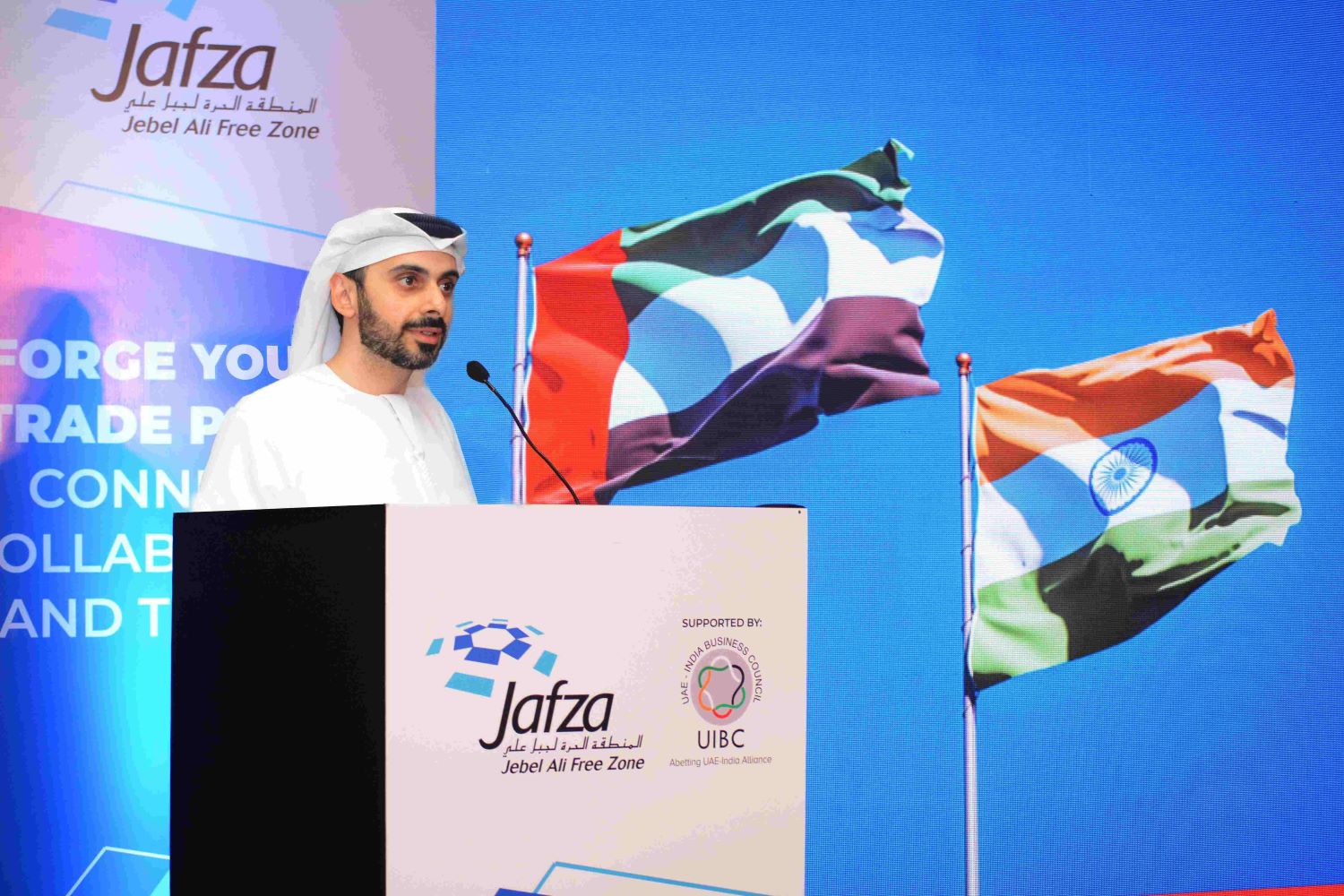DUBAI, UAE – Jebel Ali Free Zone (Jafza) is a major contributor to the growing trade between India and the UAE. There’s been a significant increase in Indian businesses setting up there, with 28 percent more new companies in 2023 compared to the previous year.
This resulted in over 190 new Indian businesses and a total of more than 1,500 Indian companies in Jafza. This growth follows trade events held in India to connect with potential businesses.
Bharat Mart, set to open in 2026, gained attention at recent trade events. This initiative aims to assist Indian businesses in accessing markets across the Middle East, Africa, and Europe by offering retail space, warehousing and logistics services.
With nearly 3,000 business leads generated in less than a month, the project has received positive reception.
Abdulla Al Hashmi, Chief Operating Officer, Parks and Zones at DP World GCC, elaborated on the platform’s potential impact and said, “We have received overwhelming interest from Indian businesses who are keen to establish a presence in Jafza and leverage our world-class infrastructure, network and market access.”
He said, “With Bharat Mart, we will continue to revolutionize trade, opening new pathways that strengthen economic partnerships and facilitate seamless global commerce.”
The gathering also shed light on the flourishing trade ties between the UAE and India since the Comprehensive Economic Partnership Agreement (CEPA) was inked in May 2022.
The landmark agreement eliminated tariffs for Indian traders, creating an open and efficient environment for cross-border trade.
As a testament to the agreement’s success, bilateral non-oil trade between the UAE and India reached US$50.5 billion in the first year of CEPA, a 5.8 percent annual increase.
The goal is to further boost non-oil trade to $100 billion by 2030.
The CEPA’s effectiveness is boosted by DP World’s India-UAE Trade Bridge initiative launched in 2019, which streamlines shipping between the two nations, reducing costs and time and generating new business opportunities in sectors like manufacturing, food and beverage, pharmaceuticals and healthcare.
Al Hashmi said, “Despite the ongoing challenges in the international trade network, our collaborative initiatives with India have led to a notable increase in trade between our two nations.”
He said, “Jafza has been key to this success, and our focus now is on sustaining this growth by empowering Indian businesses and promoting a strong trade ecosystem, reinforcing our commitment to economic prosperity.”
Jafza currently serves over 10,000 companies from 130 countries, with 87 percent of the UAE’s non-oil trade with India coming through Dubai.
Indian companies represent the second-largest partners in terms of trade volume and are fourth in terms of trade value at Jafza.
Jafza links businesses to Jebel Ali’s new Agri Terminals facility, which broke ground in February 2024.
The AED550 million complex will establish the largest multi-tenant facility in Dubai for storing and processing grains for both domestic consumption and export to the wider region.
The first phase of the project is scheduled for completion in early 2025.
Together, the port and free zone offer a comprehensive logistics solution that can help Indian companies thrive.







